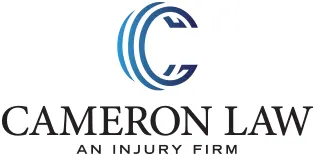Police Chases Can and Do Injure Innocents — What Can You Do?

You see them on the news, and they tend to captivate us: police chases. While we may watch them unfold in real-time, we often don’t give much thought to how dangerous police chases are, to the other drivers on the roads.
Why So Dangerous?
The first thing that makes them so dangerous is perhaps obvious: There is not one, but at least two (and perhaps more, if multiple officers are in pursuit) vehicles that are exceeding the speed limit — by a lot. Those vehicles aren’t just driving fast, they may be blowing through intersections as well.
As if that wasn’t bad enough, presumably, one of those cars (that of the escaping person), likely doesn’t care too much about others’ safety on the roadway.
Immunity? Not Exactly
Yes, police officers and their departments are generally immune from liability for accidents they cause during police pursuits. But that assumes that they are following the rules for pursuits. And while it seems distasteful to hold officers accountable for injuries they cause while doing their job, chasing after criminals, they still must know when — and when not — to engage in a high-speed pursuit.
Every police department has its own rules about when a police officer should engage in a high-speed pursuit. But all departments generally follow the same formula: They weigh the threat to the general public by the criminal getting away, against the danger to the public of engaging in a high-speed pursuit.
That balancing requires the consideration of several factors. The most obvious may be, how dangerous is the escaping criminal, and what crime that criminal allegedly committed.
Other factors may include neighborhoods and roads. A high-speed chase down the Las Vegas strip would be something that officers would have to seriously consider doing, given how many people and cars are there. But a chase down a highway may be a bit “safer” for police to engage in (although no chase is completely safe).
Other Requirements
And even if the balancing act weighs in favor of continuing the pursuit, there are still requirements that almost every department puts on pursuing police, such as the requirement that lights and sirens be on, to alert other drivers on the roads, or when approaching intersections.
Proof Problems
Police chase accidents aren’t always easy to prove.
Many juries, understandably, give great weight to what police officers do and understand the dangers of their job. Suing a police officer for an injury in a police chase isn’t so much about “second-guessing” police officers, or preventing them from doing their jobs — it’s about the necessity to know when, and when not to safely endanger the public to carry out law enforcements’ duties.
Contact the Las Vegas personal injury lawyers at Cameron Law today for a free consultation if you have been injured by police or in the course of a high-speed police chase.


